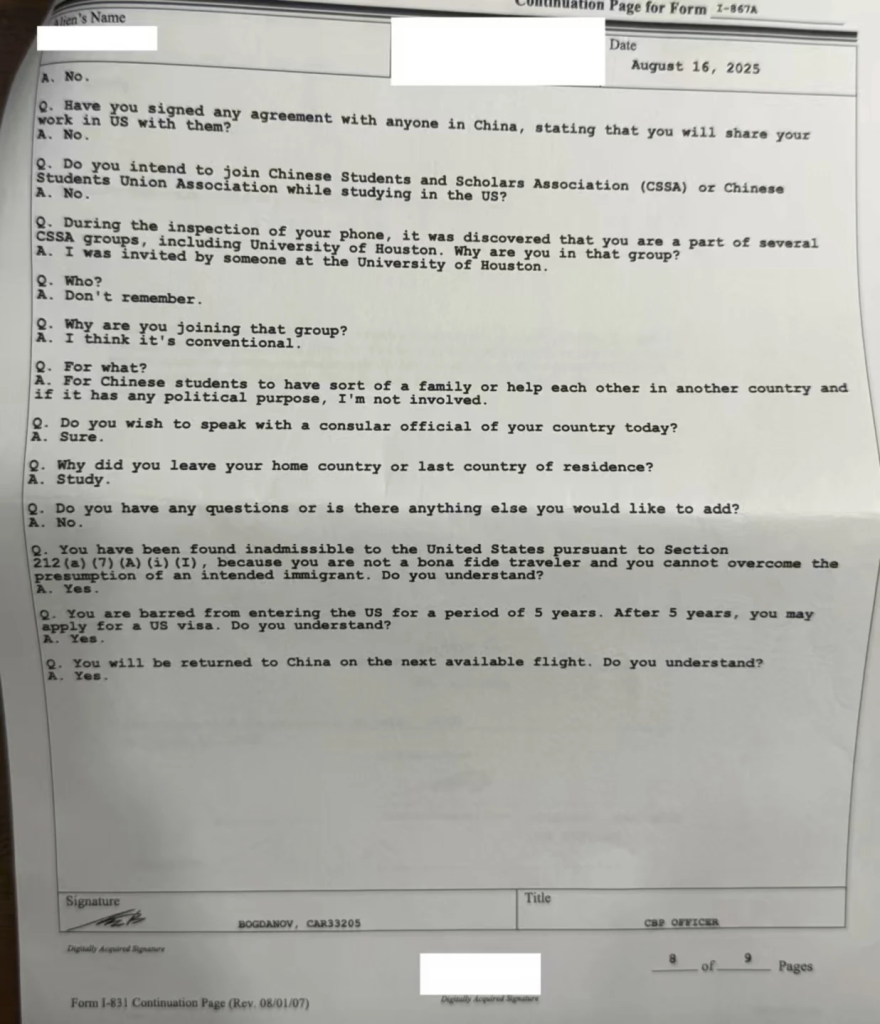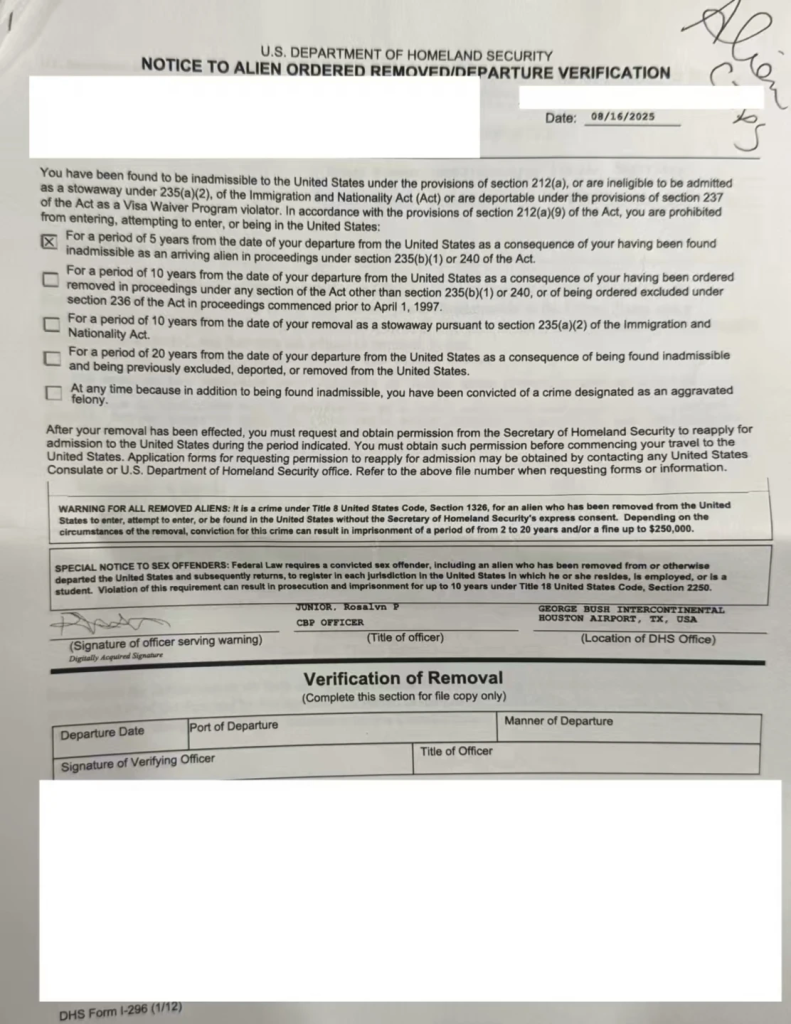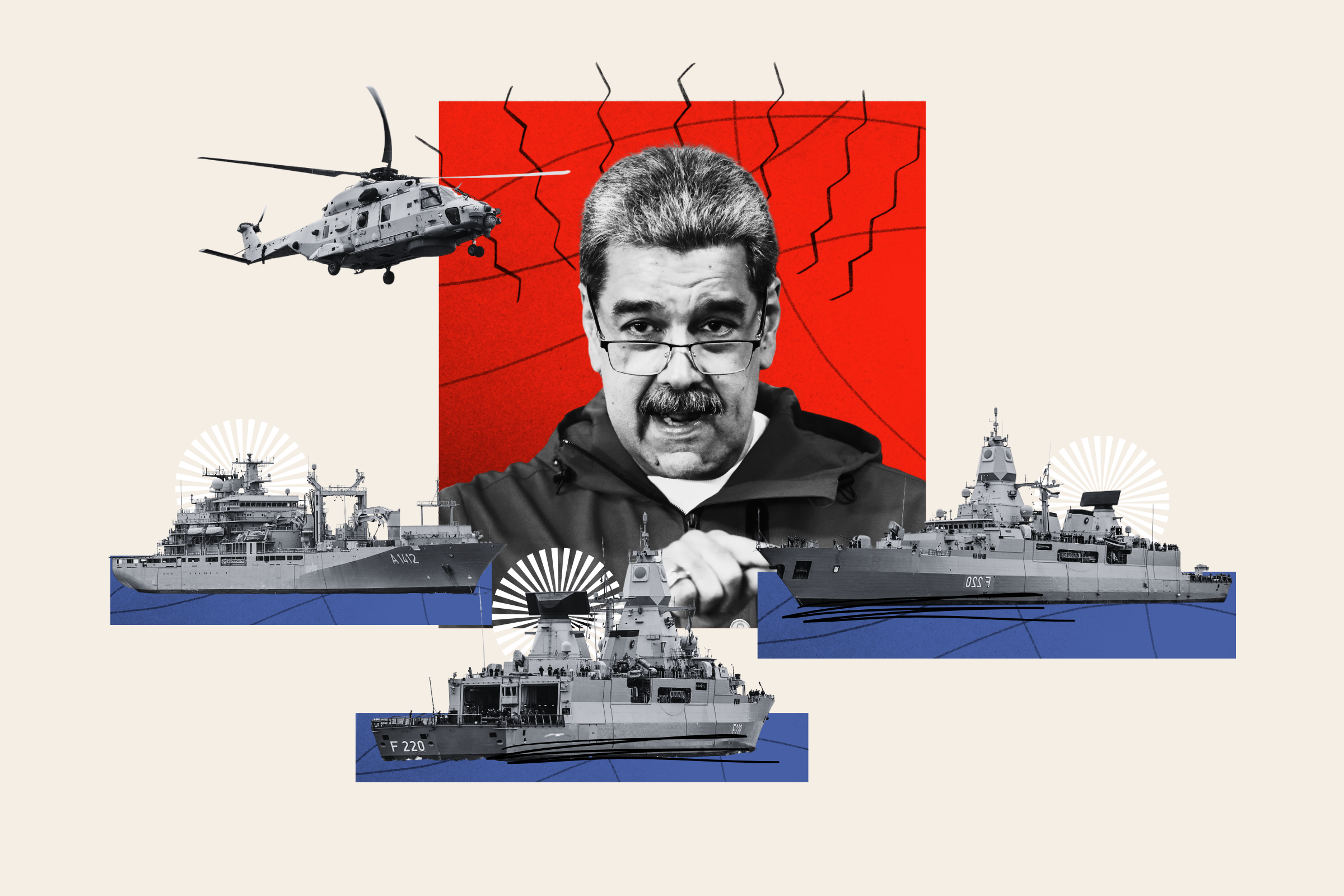At parades and in the halls of global power, America has been sidelined.
The leaders of Russia, China, and North Korea are not good men. They preside over brutal autocracies replete with secret police and prison camps. But they are, nevertheless, serious men, and they know an unserious man when they see one. For nearly a decade, they have taken Donald Trump’s measure, and they have clearly reached a conclusion: The president of the United States is not worthy of their respect.
Wednesday’s military parade in Beijing is the most recent evidence that the world’s authoritarians consider Trump a lightweight. Russian President Vladimir Putin, Chinese President Xi Jinping, and North Korea’s maximum nepo baby, Kim Jong Un, gathered to celebrate the 80th anniversary of Japan’s surrender in World War II. (Putin’s Belarusian satrap, Alexander Lukashenko, was also on hand.) The American president was not invited: After all, what role did the United States play in defeating Japan and liberating Eurasia? Instead, Trump, much like America itself, was left to watch from the sidelines.
But the parade was worse than a mere snub. Putin, Xi, and Kim stood in solidarity while reviewing China’s military might only weeks after Putin came to Alaska and showed no interest in moving to end Russia’s war against Ukraine. The White House tried to spin that ill-advised summit into at least a draw between Putin and Trump, but when the Kremlin’s dictator shows up with no interest in negotiation, speaks first at a press conference, and then caps the day by declining a carefully planned lunch and flying home, that’s a humiliation, not an exchange of views.
Nor has Trump fared very well with the other two members of this cheery 21st-century incarnation of SPECTRE. In the midst of Trumpian chaos, Xi is adroitly positioning China as the new face of international stability and responsibility. He has even made a show of offering partnership to China’s rival and former enemy India: Chinese diplomats last month said that China stands with India against the American “bully” when Trump was, for some reason, trying to impose 50 percent tariffs on India.
Likewise, the North Koreans, after playing to Trump’s ego and his ignorance of international affairs during meetings in the president’s first term, have continued their march to a nuclear arsenal that within years could grow to be larger than the United Kingdom’s. Trump was certain that he could negotiate with Kim, but the perfumed days of “love letters” between Trump and Kim are long over. Pyongyang’s leadership seems to know that it costs them little to humor Trump politely, but that they should reserve serious discussion for the leaders of serious countries.
Trump responded to his exclusion from the gala in Beijing by acting exactly like the third-tier leader that Xi, Putin, and Kim seem to think he is. As the event was taking place, Trump took to his social-media site—of course—to express his hurt feelings with a cringe-inducing attempt at a zinger. “May President Xi and the wonderful people of China have a great and lasting day of celebration. Please give my warmest regards to Vladimir Putin, and Kim Jong Un, as you conspire against The United States of America.”
Now, the reality is that Russia, China, and North Korea are conspiring against America, but it is beneath both the dignity and the power of an American president to whine about it. Trump continued his unseemly carping with a demand that China recognize the valor of the Americans who died in the Pacific:
The big question to be answered is whether or not President Xi of China will mention the massive amount of support and ‘blood’ that The United States of America gave to China in order to help it to secure its FREEDOM from a very unfriendly foreign invader. Many Americans died in China’s quest for Victory and Glory. I hope that they are rightfully Honored and Remembered for their Bravery and Sacrifice!
This message does not exactly project confidence and leadership; instead, it sounds like the grousing of a man beset by insecurities. A more self-assured commander in chief would have ignored the parade and, if asked about it, would have said something to the effect that the United States has always respected the sacrifices of our allies in World War II. But not Trump: He petulantly declared that he would not have attended even if the cool kids had invited him.
Authoritarians are unfortunately in good company in treating Trump as an incompetent leader. Even America’s allies have recognized that Trump may be their formal partner, but that they mostly get things done with the American president by soothing his ego and working around him. After Trump emerged from the summit in Anchorage essentially parroting Putin’s talking points, seven top European leaders rushed to Washington to tell Trump that he had done well and that they truly, really respected him, but that perhaps he should hold off on being a co-signer of Kremlin policy.
Trump’s damage to American power and prestige would be less severe if the president had a foreign policy and a team to execute it. He has neither: Trump ran for president mostly for personal reasons, including to stay out of prison, and his foreign policy, such as it is, is merely an extension of his personal interests. He holds summits, issues social-media pronouncements, and engages in photo ops mostly, it seems, either to burnish his claim to a Nobel Prize or to change the news cycle when issues such as the economy (or the Jeffrey Epstein files) get too much traction.
Worse, Trump is no longer surrounded by people who care about foreign affairs or can competently step in and create consistent policy. In his first term, Trump had a secretary of defense, James Mattis, who helped to create a national-defense strategy, a document that Trump might have ignored but was at least promulgated to a national-security establishment that needed direction from someone, somewhere. Now, at the Pentagon, Trump has Pete Hegseth, who shows little apparent inclination or ability to think about complexities.
Secretary of State Marco Rubio was supposed to be one of the new “adults in the room,” but he has instead become a man in a Velcro suit, with the president sticking jobs and responsibilities onto him without any further guidance. He has been reduced to sitting glumly in White House press sprays with foreign leaders while Trump embarrasses himself and his guests. Meanwhile, the director of national intelligence, Tulsi Gabbard, is spending her time trying to root out the spies she thinks hate the president. Unfortunately, the agents she’s hunting are Americans, which must bring a smile to Xi’s face and perhaps even produce a belly laugh from former KGB officer Putin.
America is adrift. It has no coherent foreign policy, no team of senior professionals managing its national defense and diplomacy, and a president who has little interest in the world beyond what it can offer him. Little wonder that the men who gathered in Beijing—three autocrats whose nations are collectively pointing many hundreds of nuclear weapons at the United States—feel free to act as if they don’t even think twice about Trump or the country he leads.
What do you expect when you turn your country over to a narcissistic grifter with dementia, 6 bankruptcies, and 34 felony convictions?

https://www.theatlantic.com/ideas/archive/2025/09/trump-parade-china-putin-xi-kim/684113








